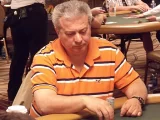
Quantum Entanglement Can Help You Win At Blackjack
December 26, 2022If you have never heard of the quantum entanglement concept, you are not alone. This concept is actually quite amazing, and it can help you win at blackjack.
Quantum physics
Quantum physics and blackjack aren’t just the stuff of science fiction. Researchers at the Massachusetts Institute of Technology (MIT) and California Institute of Technology (Caltech) have been exploring the effects of quantum entanglement on blackjack. Their results were recently published in Physical Review A.
Quantum physics is a set of rules that explain how matter behaves at the atomic level. It’s a theory that makes sense of how energy and light travel through the universe. Some physicists, such as Stephen Hawking, have incorporated it into their models of general relativity.
Quantum entanglement is the idea that two objects are correlated, even if they are physically separate. It’s an idea that sounds complicated, but it’s been proven to be true. In a game of blackjack, it could be used to give players a slight advantage over the dealer.
Researchers studied the effects of quantum entanglement on several card-counting strategies. They compared three strategies: a classic, sequential game; a strategy involving quantum entanglement; and a system combining the two.
Quantum entanglement
One of the strangest ideas in modern physics is quantum entanglement. It has intrigued researchers for decades. The concept of entanglement suggests that two particles are affected at the same time.
Quantum entanglement was first demonstrated by John Stewart Bell in 1964. His experiment showed that entangled particles can travel faster than light and can communicate instantaneously. This allows them to enhance correlations.
Researchers at MIT and Caltech have recently explored the potential of quantum entanglement in blackjack. Their results indicate that this strategy can give players a slight edge over the house.
There are a few different ways to use quantum entanglement in blackjack. First, players can share a mathematical model. This model will inform their decisions. They can also work together to track the cards. Those who are passionate about blackjack will be able to master complex strategies.
A second strategy involves using a quantum system to decide whether to hit or stand. This will help them find the best play.
Nonlocal games
Quantum entanglement can be a real asset for blackjack players. Although it may sound like a complicated theory, it has already been proven to work in the real world. Researchers at MIT and Caltech have discovered the strange quantum effects that entangled particles can have, which could give you a slight advantage over the dealer.
The theory is that entangled particles can communicate with each other instantaneously. It is not likely that casinos will ever use such systems, but you can take advantage of this idea to gain an edge over the house.
There are three basic strategies you can employ. First, you can play as a team. Two people working together to track cards can be a huge advantage over the dealer. You will get to see what the next card in the deck is before the dealer does.
Another strategy you can adopt is to use a mathematical model to guide your choices. This can be helpful in determining whether you should stand or hit.
Optional side bets
Quantum entanglement has been explored by MIT and Caltech researchers. Their results show that quantum entanglement can give a player a slight advantage over the house. However, this method won’t be applied in casinos anytime soon. Instead, researchers developed a strategy that uses two players to share a mathematical model to give each other information.
The strategy was tested in three scenarios. First, the players used a traditional card-counting method. They worked together as a team, and the outcome was that Alice helped Bob win.
Second, they shared a mathematical model to determine their choices. This gave the second player a small advantage over the dealer. For example, if the dealer busts with three cards, the player’s hand would push. If Alice and Bob both stayed, Alice’s card would be the best choice for Bob.
Researchers also considered a scenario where the players shared a mathematical model that used a quantum system to help them decide. In this scenario, the cards would be correlated and the players could use the information to place bets.






